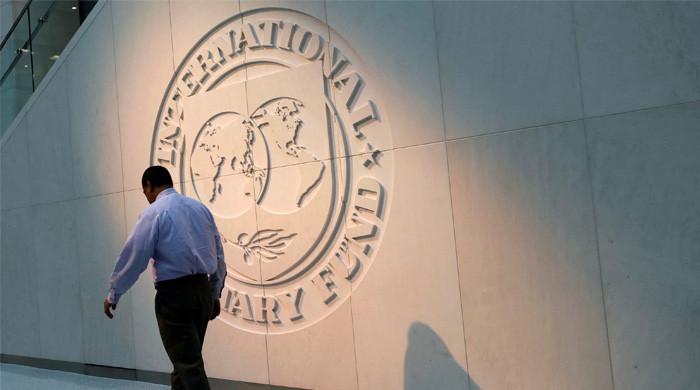Legal reforms, looking inwards
If govt wishes to pursue meaningful reform, it should address issue involving real players in the game: lawyers and litigants
January 04, 2019

There is never a bad time for introspection and with the arrival of the New Year, especially more so, notwithstanding that most New Year's resolutions are not worth the piece of paper they are written on. However, this is necessary food for thought at a state level, particularly in light of the Pakistan Tehreek-e-Insaf (PTI) government's ambitious agenda for legal reform.
The Minister for Law and Justice, Barrister Farogh Nasim, has, amongst other things, announced amendments in the Civil Procedure Code 1908 to speed up the pace of pending civil cases. In particular, he has claimed that the amendments shall enable civil cases to be disposed off within 90 days, through a three-tiered mechanism, from the filing of the case, to the defence and the onerous business of recording evidence. He has also alluded to reforming inheritance-related litigation, which normally takes years, but would now be wrapped up in fifteen days.
This is all very well, but are the real stakeholders behind and in front of the bench — the judges and the lawyers — listening? Let me humbly try to explain why the latter is key in ushering any meaningful reform.
Everyone knows that our legal process is a prehistoric dinosaur, resembling in every way a relic of the last century. And little wonder; our civil laws were enacted in 1908, ditto our Transfer of Property Act. Our Contract Act is almost a hundred and fifty years old. The rules governing commercial arbitrations have not seen any major amendments since 1940. Everyone agrees that the process needs a revamp. Usually though, the policy makers look at increasing the number of judges, increasing their salaries or introducing provisions in the law that set timelines in disposing off cases, not dissimilar to what the PTI government is proposing.
Hardly anyone looks at punitively sanctioning clients or their lawyers that perpetuate such delays in the system.
Consider a typical case of a contractual breach. Ali* enters into a contract with Bilal* (*any resemblance to real persons is purely coincidental) for supplying goods, which Ali fails to do within the specific timelines provided. Bilal fulfills his end of the bargain and then sues Ali. Bilal will file a plaint (application) before a Civil Court. The Court will issue a notice to Ali through registered post that this case has been filed against him. Usually it shall be at least two or three hearings, before Bilal or his lawyer would even respond to the notice. It is after repeated summons that Bilal's lawyer shall make an entry and issue something called a 'memo of appearance', which essentially means that he/she is the counsel engaged for the case. The matter is adjourned again with instructions for Bilal to file a response to Ali's application, something that Bilal or his lawyer would typically ignore for another couple of hearings.
A case gets adjourned for at least a period of two or three weeks, so you can do the math. Add to the fact that a typical judge in the Civil and District Court would have about forty cases in their docket and thus would be happy to postpone hearing the case, simply to get some respite.
Thus, we reach a point where even the preliminary arguments in a case are not heard. Not to mention the multiple appeals process where the process starts again. Around this time Bilal would feel whether he's in some sort of legal purgatory and questions the wisdom in filing a case in the first place. He may soldier on but may eventually break, under the spate of continuous delays and either reach a settlement with Ali, or worse abandon the case altogether.
The above scenario indicates why it is virtually impossible to enforce contracts in Pakistan, something that definitively preys on investors' minds, particularly the foreign ones that the state attempts to woo.
The elephant in the room that no one addresses is that the lawyer representing Ali will be a worthy beneficiary of the delay in proceedings and would richly benefit from the deeply flawed system. It is fundamentally easy to take the fee and effectively disappear. Lawyers are not invested in the process because they are simply not looking so far ahead and because professional ethics do not rank high in a life in litigation in Pakistan.
Here is the larger point: a judge, despite trying his/her utmost not to hear a case, will have no choice but to do so, when both lawyers are ready to argue the matter. The judge will have to hear arguments, would be constrained to record evidence and eventually pass judgment because he/she will be put in that situation.

How does one get lawyers to be effective stakeholders in ushering true legal reform?
One interesting piece of legislation that has sought to address this is "The Cost of Litigation Act, 2017" which has been enacted in the Islamabad Capital Territory and is applicable to all courts in Islamabad including the Islamabad High Court. The Act essentially repeals a provision of the Code of Civil Procedure 1908 relating to costs. Simply put, any party to any court proceedings shall before the final order, provide details of the costs incurred in the litigation, including the fee paid to the lawyer and the Court may, in exercising its jurisdiction, pay these to the winning party.
Significantly, under the new Section 35A of the Act, if a party is delaying proceedings and asking for repeated adjournments, the Court may grant this subject to a cost of Rs. 5,000/- per adjournment, subject to any adjournment being sought due to genuine and unavoidable reasons.
The Islamabad High Court has in a recent judgment, invoked the provisions of this Act, and imposed costs in a rent matter where one party pursued litigation which the Court deemed to be frivolous and akin to wasting the Court's time. There is hope that lower courts would follow suit and hit it where it really hurts: the litigant's pocket.
If the Cost of Litigation Act 2017 is promulgated on the provincial level and enforced strictly, lawyers shall have no option but to argue the matter or risk punitive sanctions in the form of costs. The evasive client will then have to do a cost-benefit analysis of deciding whether it makes sense to continue financing the adjournments in the form of costs or biting the bullet and arguing the matter. Lawyers will also be mindful of preparing the case meaningfully, as no one likes to be reprimanded in court for time wasting, unless one is deeply desensitized.
No one is fooled that it shall be a leap of faith for bar councils and lawyers to get behind this legislation. If the past is any indication, one can anticipate strikes, the occasional unruly behavior if costs are imposed, as many lawyers may take the imposition of costs as a personal slight. But eventually, one is confident that the bar councils will come around to the idea of the system moving forward. Otherwise, the system shall splutter along as it has for decades.
The hundred days for the PTI government have long since elapsed. If it wishes to pursue meaningful reform, then it should address the issue involving the real players in the game: lawyers and litigants. This will be eminently more sensible instead of introducing statutory reform to finish delays in the system, which in the past has proven to be perfunctory and unsustainable. If not, then there's more of the same, come 2019.
Ali is a barrister in Lahore. He tweets at @RezaAli1980











